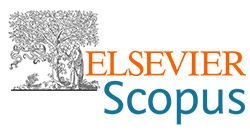Reviewer Guidelines
REVIEWERS’ RESPONSIBILITIES
Reviewers are required to provide written, competent and unbiased feedback in a timely manner on the scholarly merits and the scientific value of the manuscript.
The reviewers assess manuscript for the compliance with the profile of the journal, the relevance of the investigated topic and applied methods, the originality and scientific relevance of information presented in the manuscript, the presentation style and scholarly apparatus.
Reviewers should alert the Editor to any well-founded suspicions or the knowledge of possible violations of ethical standards by the authors. Reviewers should recognize relevant published works that have not been cited by the authors and alert the Editor to substantial similarities between a reviewed manuscript and any manuscript published or under consideration for publication elsewhere, in the event they are aware of such. Reviewers should also alert the Editor to a parallel submission of the same manuscript to another journal, in the event they are aware of such.
Reviewers must not have conflict of interest with respect to the research, the authors and/or the funding sources for the research. If such conflicts exist, the reviewers must report them to the Editor without delay.
Any selected reviewer who feels unqualified to review the research reported in a manuscript or knows that its prompt review will be impossible should notify the Editor without delay.
Reviews must be conducted objectively. Personal criticism of the author is inappropriate. Reviewers should express their views clearly with supporting arguments.
Any manuscripts received for review must be treated as confidential documents. Reviewers must not use unpublished materials disclosed in submitted manuscripts without the express written consent of the authors. The information and ideas presented in submitted manuscripts shall be kept confidential and must not be used for personal gain.
PEER REVIEW
The manuscripts submitted for review undergo a single-blind peer review process. The purpose of this review is to aid the Editor in making editorial decisions and to assist the author in improving the manuscript through editorial communication. The typical time frame for completion of the peer review process is two weeks. In case the reviewer expects to be unable to complete the review within the given time frame, he or she must notify the Editor.
When authors submit a paper, they are required to suggest potential reviewers. At least two suitable potential reviewers must be provided, along with their names, email addresses, and institutional affiliations. When selecting potential reviewers, authors should consider certain important criteria. The reviewers must have knowledge about the subject area of the manuscript, they should not be from the same institution as the authors, and they should not have had recent joint publications with any of the authors. However, the final choice of reviewers is at the discretion of the editors.
During the main review phase, the Editor sends the submitted paper to two experts in the field. The reviewers are given an evaluation form containing a checklist to ensure that they cover all aspects that can have an impact on the fate of the submission. In the final section of the evaluation form, reviewers must provide observations and suggestions aimed at improving the manuscript, which are then sent to the authors without the names of the reviewers.
All reviewers of a paper remain anonymous to the authors and act independently before, during, and after the evaluation process. They have different affiliations, are usually located in different countries, and are not aware of each other’s identities. If the decisions of the two reviewers are not the same (accept/reject), the Editor-in-Chief may assign additional reviewers to make a final decision.
During the review process, the Editor-in-Chief may require authors to provide additional information (including raw data) if they are necessary for the evaluation of the scholarly merit of the manuscript. These materials shall be kept confidential and must not be used for personal gain.
The editorial team shall ensure reasonable quality control for the reviews. With respect to reviewers whose reviews are convincingly questioned by authors, special attention will be paid to ensure that the reviews are objective and high in academic standard. When there is any doubt with regard to the objectivity of the reviews or quality of the review, additional reviewers will be assigned.
Members of the editorial board are permitted to submit their own papers to the journal. In cases where an author is associated with the journal, they will be removed from all editorial tasks for that paper and another member of the team will be assigned responsibility for overseeing peer review.






